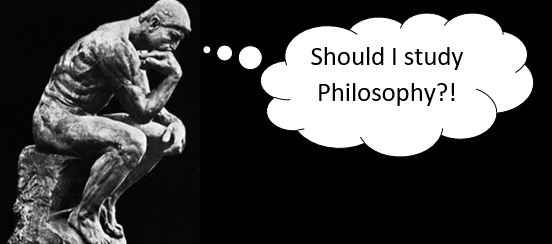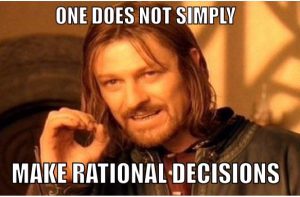
December 13, 2017, by atyljf
Is it Rational to Study Philosophy?
Philosophy isn’t a real degree, right?
Don’t we just sit around pondering the meaning of life? It won’t have any real-life relevance will it?
WRONG
Turns out, Philosophy IS relevant, engaging and vital for developing key skills such as critical thinking.
What WILL I study, then?
To give you a taste of what its like to study Philosophy here at the University of Nottingham, I shall summarize a lecture on Laurie Paul’s exploration of ‘rational’, ‘irrational’ and ‘non-rational’ decision making.

What’s a rational decision?
A ‘rational’ decision is one where one can estimate the outcomes of an action, assign value to these, and weigh up the relevant outcomes.
A rational decision, is to choose the action with the highest value outcome.
This lecture uses the example of John, who is facing weight related health risks. For John, it would be rational to NOT eat a calorific meal. This is because, although the meal would be tasty, he would be risking his quality of life. One’s quality of life has a higher value than a one tasty meal!

What’s an irrational decision?
An irrational decision has the same basis as a ‘rational’ decision, the only difference though is the highest value outcome is NOT chosen.

What about non- rational?
This may be a new term for you. For Paul, it is one where one cannot weigh up the outcomes of an action, because they cannot assign value to them.
You can’t assign value to something if they have not experienced it! And so, the process of weighing up outcomes becomes unusable.

You could say that the decision of whether to study Philosophy at UoN is non-rational because you haven’t experienced it yet! When you do, it will become what Paul calls, a “Transformative Experience”. – Something that transforms you and your preferences.

No comments yet, fill out a comment to be the first

Leave a Reply